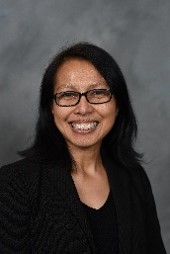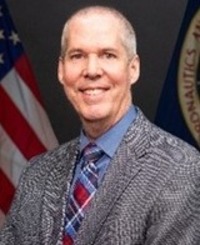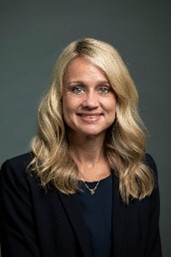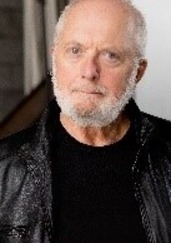

 Grace Brannan, Ph.D.
Grace Brannan, Ph.D.Dr. Brannan is an accomplished researcher, leader, teacher, and administrator. She has over 30 years of experience, over 16 years of which were in healthcare and medical education.
Dr. Brannan has built extensive experience in scholarly accreditation requirements. She is currently President of GDB Research and Statistical Consulting, a company she founded in 2018 and built on her passion with working with community hospital-based residencies (MD and DO) and medical schools in creating and implementing research strategies and programming. She collaborates with attending physicians, residents, and fellows in the design, analysis, and interpretation of clinical and medical education research.
She also is currently a Research Faculty for General Surgery, Orthopedics, Emergency Medicine and OB/Gyn residency programs. Prior to establishing her own consulting, she held the position of osteopathic medical school Associate Dean for Research where she created and successfully implemented a continuum of research strategy across undergraduate and graduate medical education. Prior to this, as Research Executive Director at a state medical school she led the research vision and strategy of its statewide 25-hospital residency training consortium.
Dr. Brannan is the President of GDB Consulting, conducting Research and Statistical Consulting with medical schools and residency and fellowship programs in developing research study methods and design, conducting statistical analysis, and data interpretation, as well as creating strategies for hospitals and residency (MD and DO) and medical school research, Quality Improvement, High Value Care initiatives, and other scholarly programs and initiatives.
Dr. Brannan received her Bachelor of Science degree from the University of the Philippines, a Master of Science from the University of Georgia, and a Doctor of Philosophy from Kansas State University.
 Charles H. Dukes, M.D., FAPA, FS, USAR
Charles H. Dukes, M.D., FAPA, FS, USARDr. Dukes is employed with UTMB under the Human Health and Performance Contract., and works at NASA Johnson Space Center with the behavioral health and performance operations group as an aerospace psychiatrist working in astronaut selection, psychiatric consultation for flight controllers and divers and operationally with crewmembers providing behavioral health support. Additionally, Dr. Dukes works with the NASA clinical and science team for Exploration Medical Capability.
Prior to NASA Dr. Dukes worked at the University of Oklahoma where he served as psychiatry residency training director and Director of Consultation psychiatry services. At the University of Oklahoma, he started the first Aerospace Medicine clinic. He completed his psychiatry residency training at Griffin Memorial Hospital in OK which is an Oklahoma State University Program. He has a long career in the military spanning over 35 years having been enlisted in the Navy and later Commissioned in the Army Medical Corps where he serves as a psychiatrist, flight surgeon and is currently the reserve psychiatric consultant to the Army Surgeon General. He has had four combat deployments as both a psychiatrist and flight surgeon. After Army flight surgeon school, Dr. Dukes worked extensively with the FAA as an Aviation Medical Examiner, HIMs psychiatrist and psychiatric consultant to the Federal Air Surgeon. His current Army reserve assignment is as an Assistant Professor of Psychiatry at the Uniformed Services University of the Health Sciences. His Army rank is Colonel.
Dr. Dukes is a Fellow in the American Psychiatric Association and holds memberships in the Aerospace Medical Association, Space Medicine Association, and the Society of US Army Flight Surgeons. His current projects include: investigation of the safety of SSRIs in microgravity; he is a contributing author to the principles of aerospace medicine 3rd edition and he has written the foreword for the upcoming edition of Dr. Nick Kanas’ book, Behavioral Health and Human Interactions in Space.
 Stephanie F. Dailey, Ed.D., LPC, NCC, ACS
Stephanie F. Dailey, Ed.D., LPC, NCC, ACSDr. Dailey is an Assistant Professor in the College of Education and Human Development at George Mason University in Fairfax, VA. Dr. Dailey is a licensed professional counselor in Virginia, a national certified counselor, and an approved clinical supervisor. Dr. Dailey specializes in disaster behavioral health, critical incident response and decision-making, and immersive simulation research methodologies. Dr. Dailey’s research is directed at better understanding community-based disasters of mass violence and appropriate mitigation, response, and recovery strategies for survivors, response personnel, and impacted communities. Her work at the federal level has included investigations of security procedures and protocols for active shooter events in K-12 schools, vulnerability mitigation for acts of mass violence, and strategies to support performance and decision-making during critical incidents. She has worked with first responders and citizens investigating the emotional impact of mass violence events and lockdown protocols on civilians and supported state and federal agencies in developing procedures for conducting trauma-informed response and mitigation protocols. Focusing on community reconciliation and resilience, Dr. Dailey has developed evidence-based guidance for individuals, families, and communities following mass casualty events, co-led a federal program on disaster preparedness and response for lockdown, and is currently co-leading a national program, Project Zero Tolerance, intended to enable individual schools throughout the United States better address their continuing vulnerabilities to school shootings.
Dr. Roche is a physician and social anthropologist who studies complex issues surrounding resiliency in populations during times of war and socioeconomic stress, and among health care providers. Currently she is a tenured full Professor in the Department of Primary Care at Ohio University’s Heritage College of Osteopathic Medicine, South Pointe Hospital Campus in association with the Cleveland Clinic. In this role, one of her research foci is examining simulated and virtual environments to enhance the understanding and training of medical professionals in times of extreme duress while performing on the job. Dr. Roche has 25 years of experience leading projects with direct governmental policy impact both in the United States and the United Kingdom, particularly in the areas of conflict management and cultural implications of health. Her personal research funding has accrued over 12 million to date and she has over 50 scholarly works within the academy, government, and not-for-profit worlds. A dual American and British citizen, she completed her degrees and medical training at Harvard University (AB), the University of Cambridge (PhD, MPhil) and Southampton in the Wessex Deanery (MD). She is the recipient of several international fellowship awards including the HRH Prince of Wales Overseas Trust for being “a force for good,” the Royal Society of Medicine, the international Academy of Translational Medicine, and the Higher Education Academy of the United Kingdom.
Dr. Liu is the Director of the Virtual Medical Environments Laboratory at the National Capital Area Medical Simulation Center (SimCen) of the Uniformed Services University (USUHS). He is involved in defining the SimCen's strategic research goals, and directing the development of the SimCen's computer-based medical training systems. Dr. Liu is the principal developer of the SimCen’s pericardiocentesis and diagnostic peritoneal lavage simulators. They are the world's first computer-based trainers for these procedures. These simulators were used in the nation's first Advanced Trauma Life Support (ATLS) course conducted without animals or cadavers. Dr. Liu is also the principal architect for the SimCen's Wide Area Virtual Environment (WAVE), a 10,000 sq. ft. total immersion virtual environment for mass casualty training, with applications in military medical readiness, and homeland defense. Dr. Liu’s current research interests involve use of the WAVE to investigate team learning and human performance under conditions of stress.
Dr. Knust serves as the Director of the Research Transition Office (RTO), Center for Military Psychiatry and Neuroscience (CMPN) at the Walter Reed Army Institute of Research (WRAIR).
 Jim O'Connor, Ph.D.
Jim O'Connor, Ph.D.Dr. O’Connor is a Professor of Education and Founding Dean Emeritus of the College of Education and Health Sciences at Touro University California (TUC). He has formerly served as the Dean of the College of Education, Director of the Physician Assistant Program, and Director of the Instructional Technology Department at TUC. He is currently Director of the Center for Innovative Learning and Teaching for the Touro College and University System’s Western Division.
Prior to coming to Touro University California, he was a Professor in the Educational Psychology Department at the University of Iowa, a Center Fellow at the North Carolina Center for the Advancement of Teaching, and an Associate Professor of Education at California State University. He also served as Supervisor of the Surgical Assisting Department at Aultman Hospital in Canton, Ohio, and was one of the first surgical physician assistants in the United States.
Dr. O’Connor has a PhD in Cognitive Psychology specializing in learning, instruction and cognition. His Master’s degree is in Adult Counseling, and his B.S. degree is in biology and chemistry. He has extensive experience in classroom management, motivation, wellness, critical thinking and problem solving, cognitive psychology, neuroscience and learning.
He has conducted dozens of workshops for teachers, and has supervised many K-12 student teachers during his career. As well, he has evaluated schools in both Hong Kong and the United States.
Dr. O’Connor is also a professional Voice Over professional, and his hobbies include swimming, scuba diving, reading, cooking, traveling, music, theatre, and cinema. He has lived in Ohio, Alaska, Colorado, California, Iowa and North Carolina.
Dr. LaPorta is Professor of Surgery and Military Medicine at Rocky Vista University School of Medicine. He is retired from the U.S. Army as a Colonel after over 26 years of service, having served in every aspect of medical education and military command leadership. A member of the prestigious Department of Defense elite Defense Health Board, he retired as a member of the Trauma and Injury subcommittee. Dr. LaPorta has performed as CO-PI on multiple DOD research projects including the use of “Immersion Training” in the formation of “Stress Inoculation” to address Hardiness, Resilience and Emotional Intelligence. He has authored over 300 peer-reviewed articles and presentations on surgery, immunology, military medicine, and simulation. Currently he is the Associate Editor of Military Medicine. Originally trained in surgery at the Medical College of Wisconsin and the University of Oxford, England. An avid skier, he was the first American to run the Olympic torch for the 2010 Vancouver games.